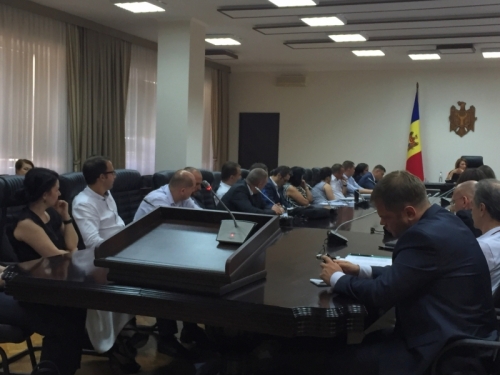On 13th July 2016, EBA members had the opportunity to discuss with Mrs. Ivanna Vladkova-Hollar, in the context of the visit of IMF’s mission in Moldova during 5-15 July 2016. The mission initiated discussions on the possible IMF program, as to agree on a comprehensive set of policies that would maintain macroeconomic stability, improve governance and transparency in the banking sector, and foster sustainable and inclusive growth. Through this joint meeting with the private sector representatives, Mrs. Vladkova-Hollar gathered insight on what works, what doesn’t and what consideration IMF should build in their subsequent discussion with the authorities.
EBA shared an overview of the current business environment, specifically the issues related to the banking sector fraud schemes, the draft law on tax service and insufficient implementation of certain financial statements related provision of the Insurance Law nr. 407 of the RM. EBA considers that solely reforming the banking sector is not enough, if there’s no follow-up tracking. The tax service draft law is weak and needs to be conceptually restructured and agreed upon with the private sector representatives. Finally, major infringements in insurance companies could be avoided by publishing financial statements, which would increase the transparency of these entities’ operations. The IMF representative accentuated that the financial sector is central to economic development, noting that lower interest rates are good, but not sufficient and that credits to the private sector need to be offered by healthy banks. Mrs. Vladkova-Hollar specified that results need to be tracked and success is to be counted not by the number of laws passed, but by their implementation. As recommendations for strengthening the banking sector, it was suggested a legal framework that would allow changes in the banking regulation through means of legislation, consolidation of the judicial system and a more activist approach on behalf of the regulators.
EBA members discussed Moldovan microfinance institutions, exhaustive labour protection that causes macroeconomic instability, the need for more reform controls, check-ups and sanctions that would further allow paying back the debts towards the global financial institutions, the raise for at least 3 years of the predictability of tax policy and the implementation of sophisticated regulation upon market readiness.
IMF projects a constrained budget due to political instability, which will hardly ensure the necessary growth. In this regard, reintegration into international community is central.


